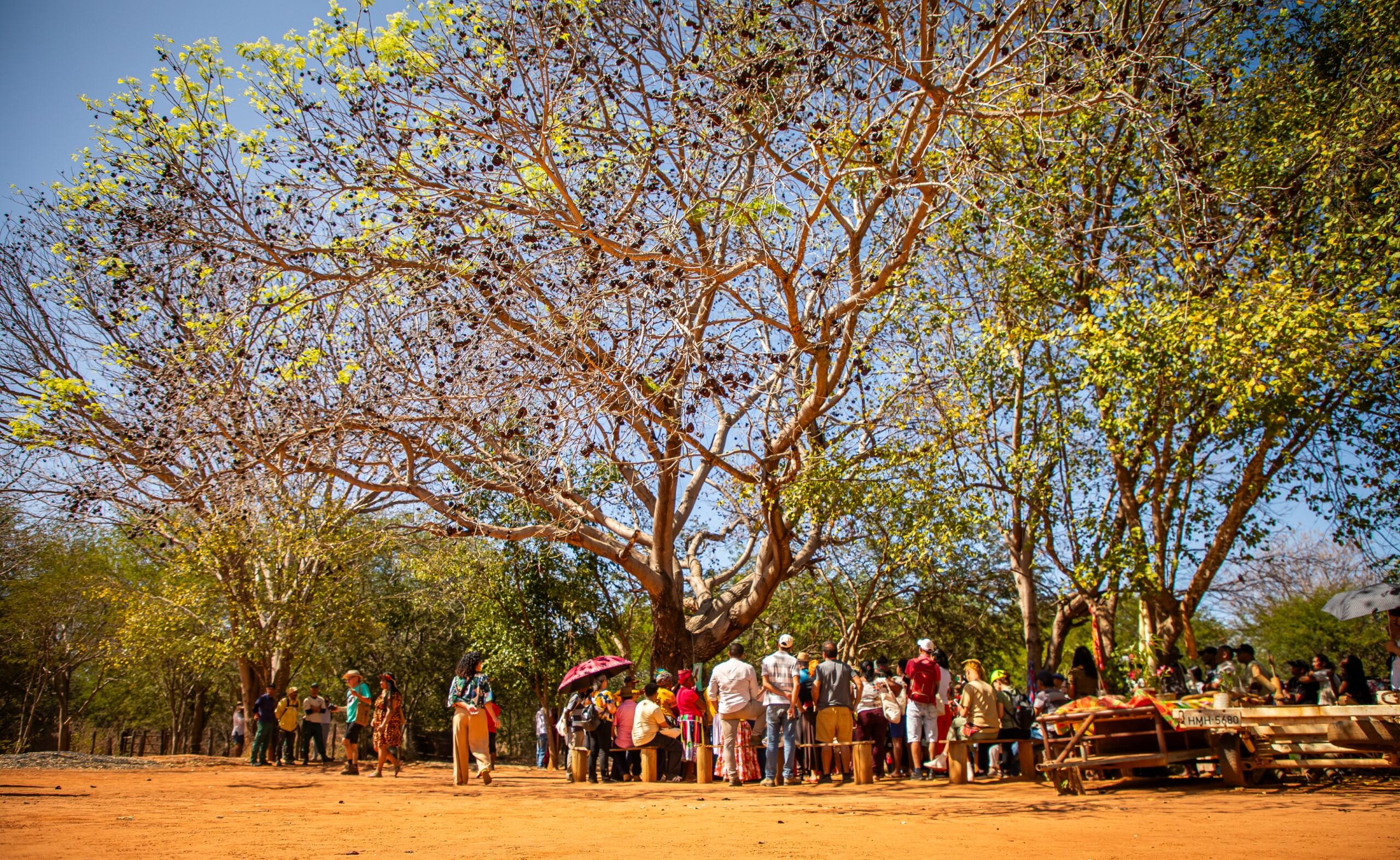Photo: Valdir Dias|CAA NM
*This is the second of two blogs from the series Trust-based and locally led processes toward Climate Justice in Brazil
This is the second of two blogs reflecting on conversations I had during my trip to Brazil, attending the 7th International Colloquium on Traditional People and Communities – Springtime of the Peoples towards COP30. This second blog addresses accountability needs at the system level, including accountability on narratives, while the first one focuses on learnings for trust-based accountable grantmaking.
Attending the different sessions of the Colloquium I heard clear and loud the call for stronger collaboration across community and indigenous funds to align narratives and demands for the upcoming COP30 in Brazil. This is especially relevant, as spaces for public participation at COP are decreasing.
Several speakers underlined the need to shift the current narratives. They argue that what a green transition means, what critical minerals are, and how climate justice is interpreted, is currently shaped by the Global North and powerful economic interests.
For instance, guest speaker Dora Lucy Arias from Colombia concorded that the dispute was at narrative, legal, and social levels. What makes sense is determined by those in power and is included in public policies. What has public utility is presumed and not debated. She reminded the audience about a report launched by GUFIDES (Public Utility Group in Latin America ) “Private Utility, Public Dispossession” prepared by organizations from 8 Latin American countries that deal with these questions and finds that what is considered public interest is based on the colonial/extractive agenda. The report includes a proposal for a ‘public utility test’.
The narrative tensions are not just between those who hold power and those who suffer consequences of extractivism and climate change, but also between different rights groups. For instance, conservationists speak about biomes but not about territory, while extractives want to kick out communities from their lands – communities considered the guardians of those biomes.
Participants recognized that shifting narratives was not a simple communications task, but part of a bigger process that builds and demands system change. Participants and speakers of the Colloquium highlighted and discussed the need to:
promote mutual accountability and transparency,
support more women to access funds and decision-making spaces,
demand restauration and reparations,
promote the autonomy and consent of communities and indigenous peoples,
develop and promote alternative economic models, such as agroecology, that can help tackle food, climate and biodiversity crises,
demand the inclusion of social and racial justice in the climate debate,
build more collaboration not only across different communities but also across different thematic fields (climate, economy, conservation, indigenous rights).
There are great efforts underway on the above and new collaborative efforts are on the way. For instance, in the Articulation of Indigenous Communities of Brazil, APIB will launch the Brazilian National Indigenous Fund at the New York Climate Week, in coordination with Shandia, a global platform to facilitate direct funding to the territories of indigenous peoples and local communities.
Learning and inspiration continued outside the Colloquium. We had lunch at a restaurant called Solar dos Sertões, housed in a beautiful colonial building, where we could taste delicious plates of Minas Gerais. This building has a somber past, as it served to sell enslaved people. Instead of becoming a traditional museum, it was turned into an interactive space to remember, connect, learn, and create.

Photo: Restaurant Solar dos Sertões/Eszter Filippinyi.
The building now houses the Center for Alternative Agriculture of the North of Minas, an organization of family farmers advocating for and promoting sustainability, agroecology, and the rights of traditional peoples and communities. In the restaurant, you can buy small farmers’ products from the region and enjoy artistic events as well. If you pass by Montes Claros, do not miss it – and if you are a funder: consider supporting the Center.
To end this recount, and if you speak Portuguese, I leave you this wonderful 2-part Podcast: Traditional Peoples and Communities of Brazil to learn the story of Brazilians who dedicate their lives to building public policies in traditional territories. Script, interviews and reporting was done by Silia Moan and Letícia Leite. Letícia is a passionate journalist I had the fortune to meet too on this trip and she is currently supporting indigenous and quilombolas communicators to launch a national radio covering climate justice issues in Brazil on the pathway to COP30.
